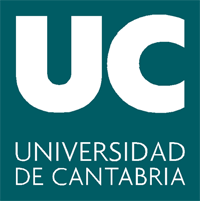Setting Up Businesses (2014)
Topic outline
-

Teaching Faculty
Ladislao Luna Sotorrío
Elisa Pilar Baraibar Diez
Ignacio Llorente García
María Dolores Odriozola Zamanillo
Organisation of Business and Work, Administration and Human Resource Management
The purpose of this course is to explain and apply a simple method for analysing the viability of business projects, which can be used by entrepreneurs for assessing the real potential of their ideas. Turning an idea for a potential business into a reality is the most complex stage. Entrepreneurs should address the risks of allocating resources to an activity about which they only have partial information.
Keywords
Business Viability, Viabilidad Comercial, Commercial Viability, Ventaja Competitiva, Viabilidad Financiera, Entrepreneurship, Proyecto Empresarial, Financial Viability, Emprendimiento, Competitive Advantage, Business Creation, Technical Viability, Viabilidad Empresarial, Creación de Empresas, Viabilidad Técnica, Viabilidad Económica, Business Plan, Economic Viability, Business Idea, Idea de Negocio.
-

Course Information
-
Course: Setting up Businesses
-
Code: G1219
-
Department / Unit: Organisation of Business and Work, Administration and Human Resource Management
-
Degree: Degree in Labour Relations
-
Faculty: Faculty of Law
-
ECTS credits: 6
-
Language of instruction: English
-
Course director: Ladislao Luna Sotorrío
- Other instructors: Elisa Pilar Baraibar Diez, Ignacio Llorente García and María Dolores Odriozola Zamanillo
Course structure
- Topic 1. Deciding whether or not to start a business: concept of viability.
- Topic 2. Economic viability.
- Topic 3. Commercial viability.
- Topic 4. Technical viability.
- Topic 5. Financial viability.
- Topic 6. Legal procedures.
-
-

Required reading list
-
Adán, Pablo (2014): «Emprender con éxito. 10 claves para generar modelos de negocio». SCLibro.
-
Blanco, Carlos (2013): «Los principales errores de los emprendedores». Grupo Planeta.
-
Claver, Pablo (2013): «Yo también puedo emprender». LID Editorial Empresarial S.L.
-
Hisrich, Robert D.; Peters, Michael P. & Shepherd, Dean A. (2005): «Entrepreneurship. Emprendedores». 6ª Edición. McGraw Hill.
-
Ocaña, José Andrés (2006): «Pienso, luego mi empresa existe». Editorial Club Universitario.
-
Veciana, José María (2005): «La creación de empresas. Un enfoque gerencial». Colección Estudios Económicos, n° 33. La Caixa.
-
-

Important notice
In order to successfully browse through the different PDF documents, they must be downloaded to your hard drive.
- MC-F-001. Topic 1. Deciding whether or not to start a business: concept of viability.
- MC-F-002. Topic 2. Economic viability.
- MC-F-003. Topic 3. Commercial viability.
- MC-F-004. Topic 4. Technical viability.
- MC-F-005. Topic 5. Financial viability and legal procedures.
- MC-F-006. Topic 6. Legal procedures. Entrepreneurship module.
-

Case studies
Topic 1. Deciding whether or not to start a business: concept of viability
-
EP-F-001. Case study 1.1. Teaching youth to build businesses. A NFTE-UK case study.
-
EP-F-002. Case study 1.2. Creating an entrepreneurial partnership. A Boots case study.
Topic 2. Economic viability
-
EP-F-003. Case study 2.1. Building a competitive advantage. A Bryant Homes case study.
Topic 3. Commercial viability
-
EP-F-004. Case study 3.1. Creating value through the marketing mix. An Aldi case study.
-
EP-F-005. Case study 3.2. Planning effective marketing strategies for a target audience.
Topic 4. Technical viability
-
EP-F-006. Case study 4.1. Locating a business to enhance the customer experience. An Enterprise Rent-A-Car case study.
Topic 5. Financial viability and legal procedures
-
-

Generic resources
Topic 1. Deciding whether or not to start a business: concept of viability
Webpages, blogs and articles
To-do list
-
Test your idea: TESTiDEA.
-
Test your idea: Test de evaluación ideas.
-
Test your entreprenurial skills: Autodiagnóstico del emprendedor.
-
Test your entreprenurial skills: Mide tus habilidades como empresario autónomo.
Topic 2. Economic viability
Webpages, blogs and articles
Topic 3. Commercial viability
Webpages, blogs and articles
Topic 4. Technical viability
Webpages, blogs and articles
To-do list
Topic 5. Financial viability
Webpages, blogs and articles
- Red Asturiana de Business Angels.
-
Awards for entrepreneurs:
-
Crowdfunding:
-
State aids:
Interesting Twitter profiles
-
@emprendecise. Centro Internacional Santander Emprendimiento (Santander International Entrepreneurship Center).
-
@Emprendedores. Revista #Emprendedores. Hearst Magazines España.
-
@EntMagazine. Inspiring, informing and celebrating entrepreneurs since 1973.
-
@alejandrosuárez. Un tipo normal. Emprendedor, empresario y business angel.
-
@carlosblanco. Entrepreneur & business angel.
-
@eoi. Escuela de negocios fundada en 1955 y especializada en formación en los valores de una economía abierta, social, verde y digital.
-
@nestor_guerra. Entrepreneur & business school professor.
-

Assessment criteria
ASSESSMENT METHODS AND CRITERIA «SETTING UP BUSINESSES»
Description
Type
Final assessment
Retake option
%
Presentation of part 1 of the project:
idea and economic viability
–
No
No
5%
-
Minimum mark: 0.00.
-
Duration: 1.5 hours.
-
Date: Week 2 March.
-
Retake conditions:
-
Notes: Group presentation and submission.
Presentation of part 2 of the project:
commercial viability
–
No
No
5%
-
Minimum mark: 0.00.
-
Duration:
-
Date: First week of April.
-
Retake conditions:
-
Notes:
Presentation of part 3 of the project:
technical viability
–
No
No
5%
-
Minimum mark: 0.00.
-
Duration:
-
Date: First week of May.
-
Retake conditions:
-
Notes:
Final submission and final presentation
of the project
Oral exam
Yes
Yes
55%
-
Minimum mark: 5.00.
-
Duration:
-
Date:
-
Retake conditions:
-
Notes:
Theory test
Test
Yes
Yes
30%
-
Minimum mark: 3.00.
-
Duration:
-
Date:
-
Retake conditions:
-
Notes:
TOTAL
100%
COMMENTS:
- In order to pass the course, it is necessary to form part of a group and do the work of analyzing the business project's viability (the work can not be done individually).
COMMENTS FOR PART-TIME STUDENTS:
-
-
-


Ladislao Luna Sotorrío
Organisation of Business and Work, Administration and Human Resource Management
UNIVERSIDAD DE CANTABRIA
Additional information
Elisa Baraibar Diez
Organisation of Business and Work, Administration and Human Resource Management
UNIVERSIDAD DE CANTABRIA
Additional information
Ignacio Llorente García
Organisation of Business and Work, Administration and Human Resource Management
UNIVERSIDAD DE CANTABRIA
Additional information
María Dolores Odriozola Zamanillo
Organisation of Business and Work, Administration and Human Resource Management
UNIVERSIDAD DE CANTABRIA
Additional information
